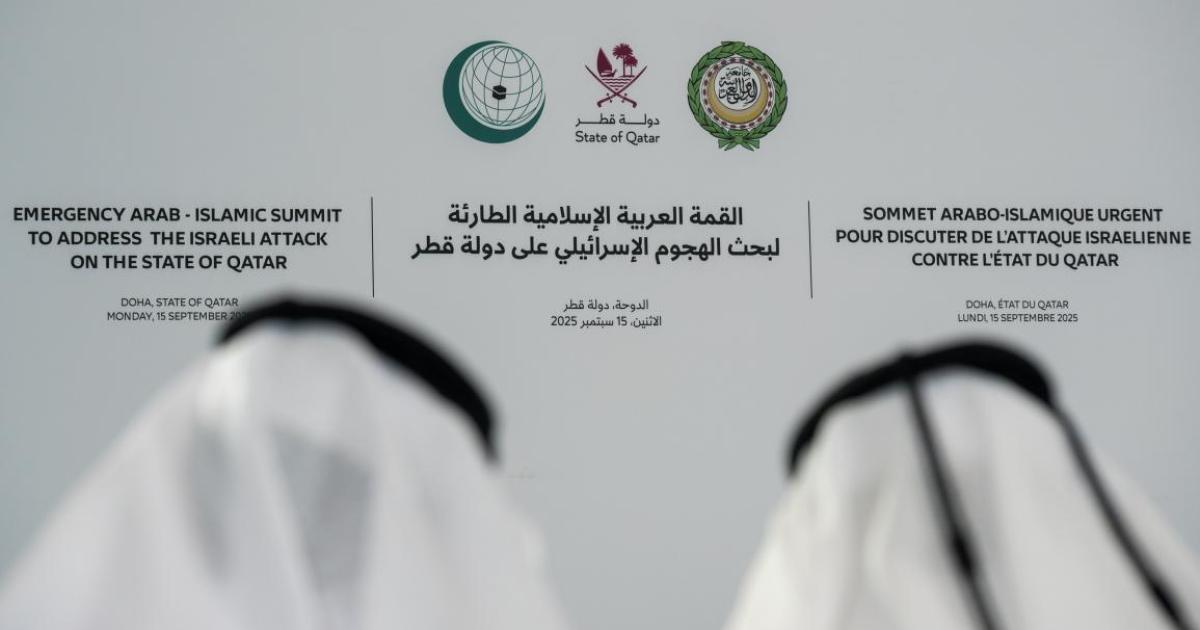Doha Summit And The Karama Crossing Attack: Public Fury, Official Complicity
This is not about justifying or condemning Abdul-Muttalib al-Qaisi, the Jordanian driver who killed two Israeli soldiers before being killed himself. Lone acts of violence will not stop a genocidal war. But his despair is understandable. What truly deserves condemnation, Andoni argues, is the official Arab complicity-the governments preoccupied with appeasing Washington while doing nothing to stop a televised massacre, nor standing firmly with Syria, Lebanon, Yemen, and now Qatar. The Doha summit made its priorities clear in its final statement: preserving relations with Israel and protecting the so-called“sacred Abraham Accords.”
The summit's failure to take decisive steps only deepened the sense of helplessness across the Arab world. Reports that the final communiqué was altered at the last minute to remove even a symbolic reference to freezing economic ties with Israel illustrate Washington's heavy hand. Such language, however toothless, was deemed unacceptable because the U.S. remains committed to shielding Israel from accountability, ensuring that normalization stays untouched by the war in Gaza. This is not conspiracy theory-it is how Washington manages the region to protect both its interests and Israel's, often by pressuring specific Arab states to block consensus.
For ordinary Arabs, this abdication of responsibility intensifies anger and despair. In Jordan, Foreign Minister Ayman Safadi's fiery words offered no reassurance, as the Doha communiqué only reinforced the gap between rhetoric and reality. The same applies across the Arab world, particularly in states bordering Israel. There had been faint hope that Israel's strike on Qatar would jolt others into realizing that, in Tel Aviv's eyes, every Arab state is ultimately an existential enemy. But that hope, too, evaporated.
Meanwhile, Israeli Prime Minister Benjamin Netanyahu had little to fear from Doha. The U.S. establishment-not just President Donald Trump-has treated the Abraham Accords, signed in 2020, as a cornerstone of regional strategy: normalizing Israel's presence, erasing the language of liberation, and pushing Arabs to accept Israel's colonial project as natural. The accords were celebrated as a historic breakthrough because they enlisted wealthy Gulf states far from Israel's borders, turning them into financiers of normalization and advocates of Israel's narrative. Washington now views them as untouchable.
This is why the Doha statement avoided any negative reference to the Accords. Everything else-Gaza's bloodbath, land grabs in the West Bank, Jerusalem's Judaization, the sovereignty of Jordan, Lebanon, Syria, Yemen, and even Qatar itself-was secondary to preserving normalization.
Al-Qaisi's act may not have been a direct response to the summit's failures, but it was a response to the humiliation he felt as a driver ferrying aid to Gaza, bearing witness to Palestinian suffering while hearing empty speeches at home. Blaming Jordan alone misses the point. No Arab or Islamic state has shown real leadership. Jordan has instead become a testing ground for the consequences of this paralysis, even cracking down on pro-Gaza marches and activists while delivering fiery speeches abroad.
Ultimately, Doha confirmed that normalization with Israel and the Abraham Accords have become the region's only“sacred” principle. Under such conditions, it should not surprise anyone that acts of rage like al-Qaisi's erupt. That anger is growing inside us all. Unless Arab states lead a serious international campaign to sanction Israel-starting with ending normalization and cutting ties, steps already taken by countries in Europe, Africa, and Latin America-no Arab initiative will carry weight. The real blame lies not with those who resist Israel, but with those who shield it.
Article in Arabic

Legal Disclaimer:
MENAFN provides the
information “as is” without warranty of any kind. We do not accept
any responsibility or liability for the accuracy, content, images,
videos, licenses, completeness, legality, or reliability of the information
contained in this article. If you have any complaints or copyright
issues related to this article, kindly contact the provider above.
Most popular stories
Market Research

- Jpmorgan Product Head Joins GSR Trading MD To Build Institutional Staking Markets
- Kintsu Launches Shype On Hyperliquid
- R0AR Launches Buyback Vault: Bringing 1R0R To R0AR Chain Unlocks New Incentives
- Excellion Finance Scales Market-Neutral Defi Strategies With Fordefi's MPC Wallet
- Ethereum-Based Meme Project Pepeto ($PEPETO) Surges Past $6.5M In Presale
- Falcon Finance Unveils $FF Governance Token In Updated Whitepaper





















Comments
No comment